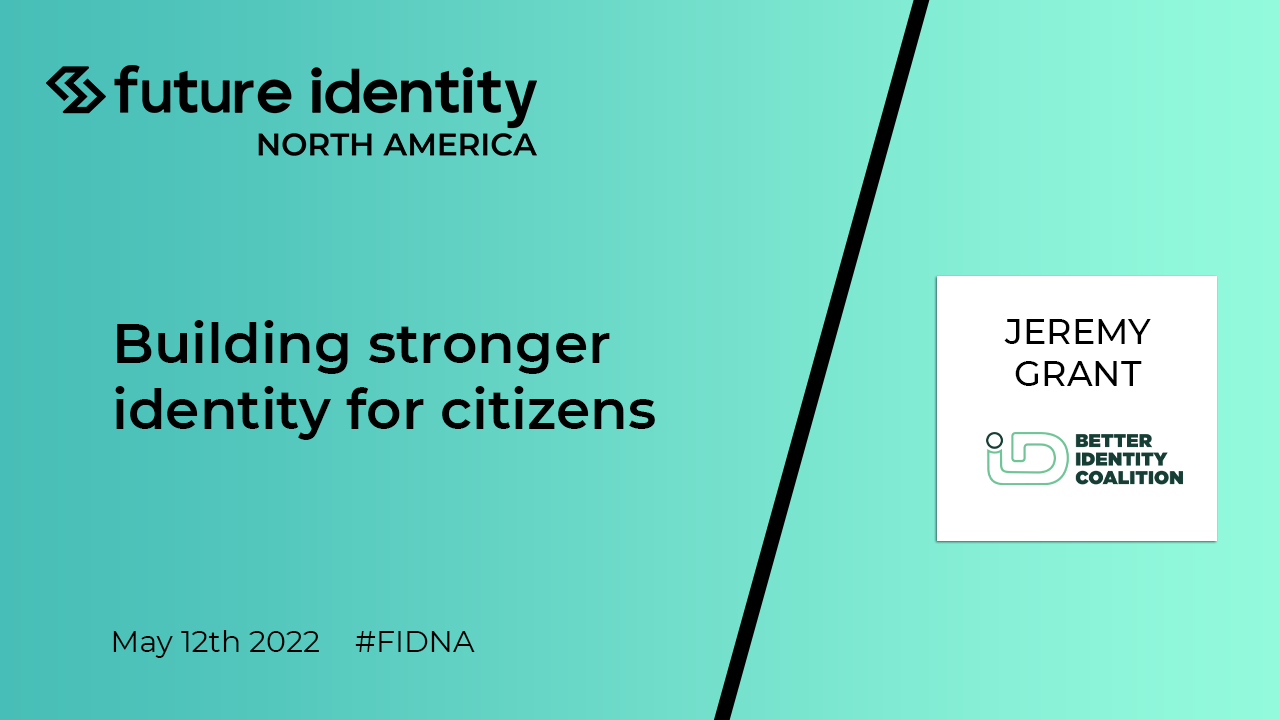Across North America, identity systems have not fully evolved for a digital world. Social security numbers are still relied on despite widespread misuse, and digital identity rules and requirements vary immensely between jurisdictions. During the pandemic, millions faced difficulties accessing emergency funds while fraudsters were more active than ever.
At Future Identity North America, we were joined by Jeremy Grant, Coordinator of the Better Identity Coalition, to explore how policymakers and industry are collaborating to address this urgent need for stronger digital identity systems.
The Better Identity Coalition is an initiative of the Center for Cybersecurity Policy and Law. It focuses on developing and advancing consensus-driven cross-sector policy solutions, that can lead to improved tools for identity verification and authentication.
“A big question,” Jeremy says, “is why has this been so hard to solve?” He goes on to suggest that the explanation lies in the identity gap that exists in the US. “We don’t have a national ID but we have a number of nationally recognised authoritative identity systems, a driver’s license, a social security card, a passport, and all of them are trapped in the paper world.”
The problem is that citizens are trying to use these credentials to interact and access services in the online world. There has been an effort to try and close the gap between physical and digital through knowledge based authentication, which Jeremy explains, “despite its flaws was the best tool out there in the market for a while.”
Unfortunately attackers have since caught up, and knowledge-based methods can no longer be used to satisfy verification requirements. Before agencies can implement new technologies, a framework of standards and policies is needed, Jeremy states.
“We ought to have rules and best practices that any agency, at any level of government can use to create interoperable services that set a high bar for security and privacy, and beyond this allows the economic benefits of digital identity to be much more easily realised across the country.”
The full session is now available to watch.
______________________________
The conversation continues at the Future Identity Festival 2022, co-located with the Fintech Talents Festival, on the 14th – 15th November, at The Brewery, London.


